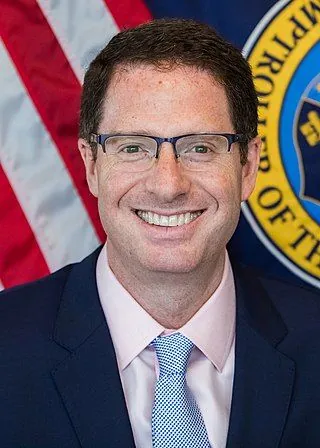Brian P. Brooks
Brian P. Brooks is an American lawyer, banker, entrepreneur, technologist, and former government official. He served as Acting Comptroller of the Currency from May 29, 2020, succeeding the 31st Comptroller of the Currency Joseph Otting, until January 14, 2021. Brooks was nominated twice by President Donald Trump for a five-year term as Comptroller of the Currency, once during the 116th Congress, and once in the 117th Congress.

Some of the key events about Brian P. Brooks
- 1994Graduated from Harvard Law School
- 2011Joined OneWest Bank as Vice Chairman
- 2014Became Executive Vice President, General Counsel, and Corporate Secretary at Fannie Mae
- 2018Appointed Chief Legal Officer of Coinbase
- 2018Joined Coinbase as Chief Legal Officer, a cryptocurrency exchange that has faced regulatory scrutiny
- 2020Became Acting Comptroller of the Currency
- 2020Issued guidance allowing national banks to provide cryptocurrency custody services
- 2020Appointed as Acting Comptroller of the Currency by President Trump, raising concerns about potential conflicts of interest
- 2020Pushed for controversial "fair access" banking rule that critics argued could force banks to lend to risky industries
- 2021Proposed a rule to ensure fair access to banking services
- 2021Joined blockchain infrastructure platform Binance.US as Chief Executive Officer
- 2021Testified before the U.S. Senate Committee on Banking, Housing, and Urban Affairs on cryptocurrency regulation
- 2021Resigned as Acting Comptroller of the Currency after only 8 months in office, leaving key initiatives unfinished
- 2021Became CEO of Binance.US, another cryptocurrency exchange under regulatory investigation
- 2021Abruptly resigned as CEO of Binance.US after only 4 months, citing "differences over strategic direction"
- 2022Appointed to the board of directors of Spring Labs, a blockchain-based data network
- 2022Faced criticism for his role in promoting cryptocurrency adoption while in government positions
Disclaimer: This material is written based on information taken from open sources, including Wikipedia, news media, podcasts, and other public sources.





























